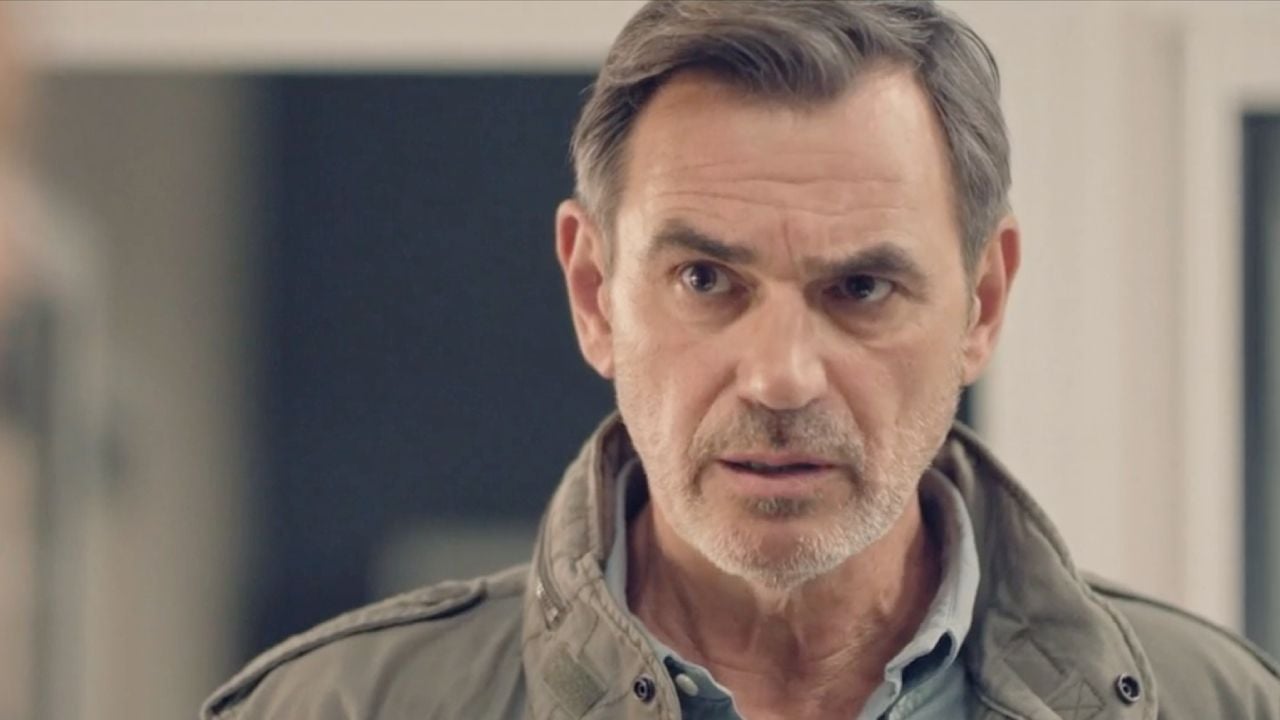‘This film can help you understand why democracy is vital.’ says Fernanda Torres
One day, the dictators will disappear into the sewer of History, but the books and films will remain.
The declaration is Walter Salles (Central Brazil), who recently signed his powerful contribution to the list of films about the military regime in Brazil, the applauded I’m Still Here.
Centered on the effect of the military’s terrifying, omnipresent and faceless power on Brazilian society from 1964 to the end of the 1980s, the film follows the well-known story of the family Paivawhose father, the former deputy Rubens Paivadisappeared after being taken from home by Brazilian army soldiers in January 1971.

“In that house, the windows were always open, and the door never had a key.”says the director Walter Sallesevoking the feeling of freedom present and the mix of groups of friends and political discussions that characterized the meetings that took place there.
Rubens, played by Selton Mello (Jean Charles, The Clown), was never found again. At home, Eunice Paiva, played by Fernanda Torres (Foreign Land), and his five children, including one who is still young Marcelo Rubens Paivawho would become the author of the book of the same name that served as the basis for the script written by Walter Salles himself together with Murilo Hauser and Heitor Lorega.
After her husband’s disappearance, Eunice finds herself alone, without a breadwinner, with financial difficulties and an incessant fear of the intimidating presence of agents from the military army’s repression forces who lie in wait in her home.
The State and the silence of truth
Faced with the constant presence of this enemy surrounding the Paiva house, Eunice is left to suppress feelings and hide the truth from her children. “The State imposes on her silence, a non-response about her husband’s death. And she does the same with her children, otherwise, she remains silent. I believe that to preserve the innocence of the children, because it was such an arbitrary, unfair act [o desaparecimento do pai]… how do you explain this to children aged 9 to 18?”asks Fernanda Torres.
The actress declares that she was challenged to capture Eunice’s duality: a woman who, although tied to her home, has remarkable strength and resistance. Her ability to maintain her conviction and smile in the midst of tragedy was a defining characteristic she had to convey. Fernanda faced the challenge of playing Eunice with a focus on subtraction, avoiding excessive melodrama.

“Eunice is a complex character, a complex person”declared Fernanda Torres in conversation with the Rolling Stone Brazilhighlighting the importance of understanding what drove that woman, especially at such a troubled time in the country’s history. Eunice’s emotional depth, as revealed by Fernanda, is anchored in a persuasive force that, even in silence, dominated her interlocutors.
She always had a smile on her face and a strength that doubled her opponent, always with enormous intelligence and an irremovable smile. She did not budge from her conviction.
The scene where the magazine Headline visiting the family for an interview, followed by a photo, demonstrates this.
This immobility in her beliefs and the way she dealt with her family’s tragedy make Eunice a difficult character to interpret, something that the director himself Walter Salles helped shape throughout filming. “Walter came and said, there’s a lack of smile, there’s a lack of Eunice”recalls Fernanda, describing how it was necessary to adjust her performance to reflect the softness and emotional control that defined Eunice.
The subjective horror of reality
I’m Still Here comes in the wake of consistent film production, which, in recent decades, has been successful in representing the desolation that the period of the Military Dictatorship brought to the country. Whether in documentaries like Goat Marked for Death (1984), from Eduardo Coutinhoor in works based on real events, such as Marighella (2019), from Wagner Mouraor What’s That, Mate? (1997) – which had already included Mello and Torres in the cast – there are countless examples of stories told about those affected by the authoritarianism of the time in the country.
Like a sad irony, the film begins with a warm and fuzzy gathering between family and friends. Some moments give clues that something is not right, but the moment is affectionate and friendly, a pulse of life and dialogue. The scene will be given new meaning until the end of the film, but not before being followed by a clear turning point, which occurs when Rubens Paiva is taken in for questioning.
With the tragedy of the loss of the patriarch, father and husband, there is a break in this idyllic world. The house closes, representing the arrival of oppression. “From that moment on, everything changes: the light is subtracted, the sound is muffled, and language becomes more subjective”explains Walter Salles. The presence of the music, so vibrant at the beginning, gives way to silence and anguish, requiring a new approach to filming, with more fixed cameras and dark spaces that reflect the tension of the period.

It is worth highlighting the way in which the agents of the dictatorship are portrayed in the film. Instead of being shown as brutal, Walter Salles chooses to present them as complex beings, making the scenes of violence even more disturbing. Not that I’m Still Here explore physical violence; it is worked in a more psychological and disturbing way, taking on the air of a distressing horror film. The scenes of Eunice Paiva node Department of Political and Social Order (Dops) are suffocating and revolting. The sounds in the background remind you of something already done in Zone of InterestOscar-winning film for Best Sound at the 2024 Oscars: we know what happens there, although we are never eyewitnesses to that terror.
A bridge to history itself
I’m Still Here does not force an emotional response from the audience; on the contrary, the restraint in the acting and direction creates a complicity with the characters, allowing the audience to feel the arbitrariness of life and power. The film also stands out for its unique approach, which contrasts with the fragmented narrative typical of modern productions. In times of streaming and fast content, I’m Still Here proposes a cinematic experience that values time and depth, allowing the audience to truly connect with the characters and their stories.
This film can help you understand why democracy is vital.”
(Fernanda Torres)
However, I’m Still Here is not limited to telling the story of Eunice or the disappearance of Rubens, it also reflects on an era marked by struggle and the search for a fairer Brazil. From this, Walter observes that, at the essence of cinema, is the ability to connect people, and this was evident during filming, where everyone involved became a “big cinema family”.
In addition to the planned scenes, the team also filmed rehearsals, allowing the actors’ energy and spontaneity to be preserved on screen. This approach brought a new dimension to the film, providing a feeling of freshness and authenticity, making the characters’ emotions become palpable. In these moments, the one who shines the most is Selton Melloactor known for comedic roles such as Chicó of The Auto da Compadecida (2000) and the Leléu of Lisbela and the Prisoner (2003). In I’m Still Herehe takes on the role of a beloved figure, the famous “big daddy”.
Selton shared his experience of transforming the character, highlighting not only the physical change, which involved losing 20 kilos, but also the internalization of Rubens Paiva’s personality. He reflects on how this metamorphosis was essential to bring Rubens’ figure to life, revealing that the transformation was not limited to appearance, extending to a deep understanding of the role
Despite not having many references, visual or sound, from Rubens Paiva, the actor sought to understand how to capture his spirit on screen. The challenge was to find a balance between the spiritual and technical nuances of acting. Selton recognizes that Walter Salles’ direction was essential to create an authentic and touching work, as the filmmaker combines delicacy and precision. “It wasn’t just my charisma”jokes Selton.
The film’s reception at festivals such as Toronto has been extraordinary, with several awards, including Best Screenplay in Venice Festivaland a constantly emotional audience. All screenings at the 48th São Paulo exhibition ended with applause. The filmmakers note a rare moment for Brazilian cinema, in which human and family stories are reaching a wider audience. This emotional connection with audiences, not only in Brazil, but in major international centers, is a sign that the film resonates with universal issues of oppression, freedom and the search for dignity.
The team expressed their hope that I’m Still Herecandidate from Brazil for a vacancy in the Oscar for Best International Film in 2025, can serve as a bridge for new generations to understand the lessons of the past, especially at a time when there is a growing phenomenon of young people who are unaware of the reality of the dictatorship.
“This film can help you understand why democracy is vital”states Fernanda Torresrecognizing that the difficulties of democratic life should not be confused with the horrors of an authoritarian regime. “I’m sure these young people wouldn’t want to live in the country I lived in. And maybe this film will help them understand why.”
Source: Rollingstone
Rose James is a Gossipify movie and series reviewer known for her in-depth analysis and unique perspective on the latest releases. With a background in film studies, she provides engaging and informative reviews, and keeps readers up to date with industry trends and emerging talents.







